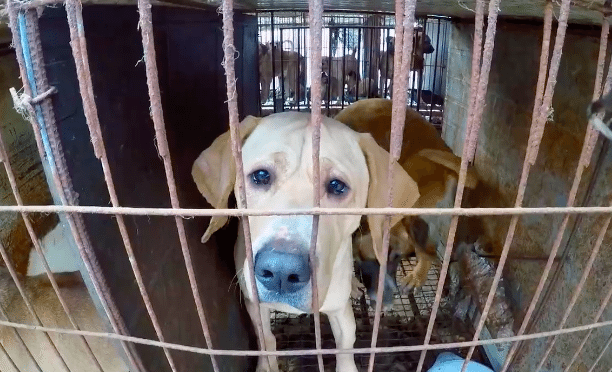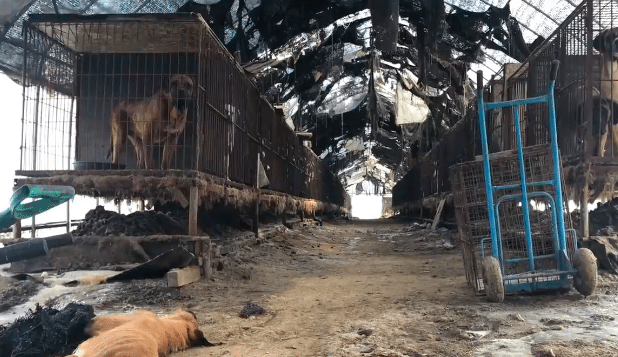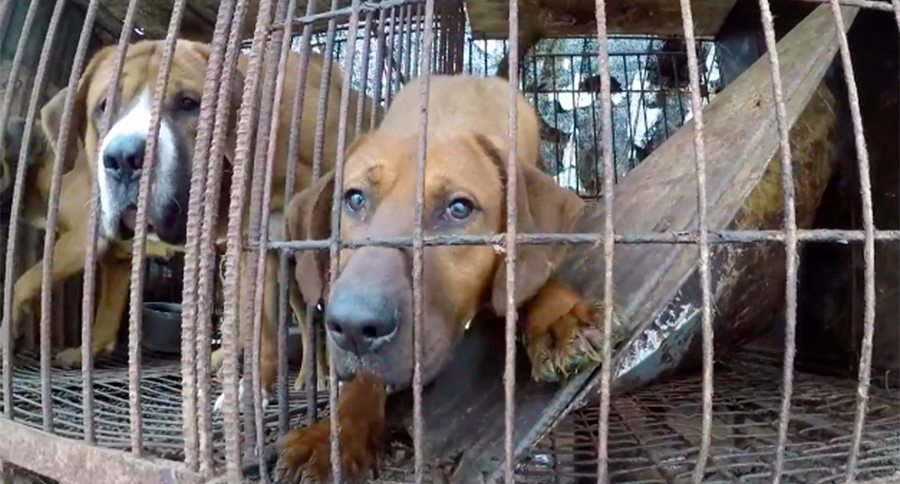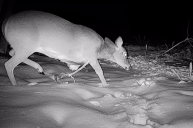USA TODAY reporters uncovered an awful scene too close to the celebrations.
Right outside Pyeongchang and the excitement of the Winter Olympic games is a dog meat farm that journalists Martin Rogers and Sandy Hooper were able to investigate. The footage that came from the report is awful and terrifying for western audiences but important for everyone to see.
The reality is that the Korean dog meat trade is alive and well.
WARNING: Some may find this disturbing
Hundreds of dogs ranging from hounds to St. Bernards to retrievers are crammed into long rows of cages awaiting slaughter. The meat is used for everything from dog salad, dog ribs, dog stew, and dog hot pot. And while the restaurants near the Olympic venues were told to take outside signage advertising dog meat down, the delicacies are still offered on the menu.

The journalists are noticeably rattled as they walk through tents with hundreds of crying, emaciated dogs sitting over their own feces suffering from wounds and sores, waiting for their turn to die. And the dogs do seem to understand they have little time left.

The problem is that dog meat in Korean culture is said to have "mythical properties that boost restorative powers and increase virility," according to USA TODAY. The meat is largely eaten by the older Korean population and the government is afraid of backlash if they ban dog meat. There are also many who look to chicken and beef factory farms in the United States and see nothing different.
The Pyeongchang Winter Olympic committee is aware of the controversy, and tried their best to hide the realities of dog consumption from the millions of foreigners flocking to Pyeongchang to see the winter games.
"We are aware of the international concern around the consumption of dog meat in Korea," reads an organizing committee statement. "This is a matter which the government should address. We hope that this issue will not impact on the delivery or reputation of the Games and the province and we will support the work of the province and government on this topic as needed. Also, dog meat will not be served at any Games venue."

There is, however, some good news. Fewer South Koreans, especially in the younger generations, are eating dog meat, which in turn, is decreasing demand. South Korea's president Moon Jae-In even adopted a dog rescued from a farm, which means times are changing.
Rogers and Hooper visited a few dog farms that have since been shut down.
"The problem is that while smaller facilities close due to lack of business, larger, better organized ones are popping up," said Kiana Kang, director of programs and special animal welfare projects of American non-profit rescue organization Animal Hope and Wellness.
"This is the two Koreas. There is the beauty and the culture, and then there is this."
Olympic athletes freestyle skier Gus Kenworthy and snowboarder Lindsey Jacobellis have used their time in the spotlight to bring attention to the plight of Korean dogs. Canadian figure skater Meagan Duhamel has already adopted a dog rescued from the meat trade.
Tell us what you think in the comments below.
WATCH NOW: People Are Poisoning Dogs




